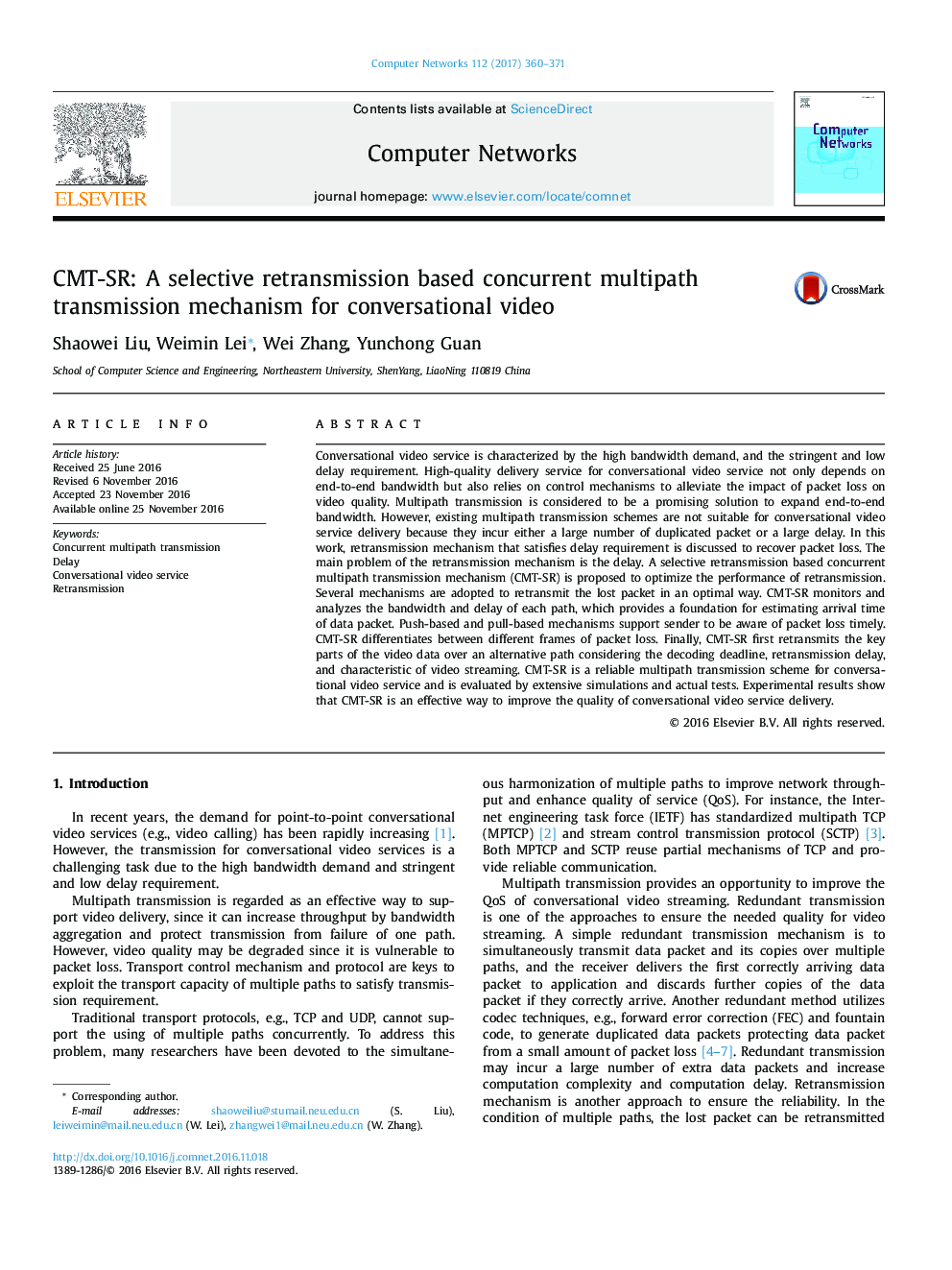| Article ID | Journal | Published Year | Pages | File Type |
|---|---|---|---|---|
| 4954858 | Computer Networks | 2017 | 12 Pages |
Conversational video service is characterized by the high bandwidth demand, and the stringent and low delay requirement. High-quality delivery service for conversational video service not only depends on end-to-end bandwidth but also relies on control mechanisms to alleviate the impact of packet loss on video quality. Multipath transmission is considered to be a promising solution to expand end-to-end bandwidth. However, existing multipath transmission schemes are not suitable for conversational video service delivery because they incur either a large number of duplicated packet or a large delay. In this work, retransmission mechanism that satisfies delay requirement is discussed to recover packet loss. The main problem of the retransmission mechanism is the delay. A selective retransmission based concurrent multipath transmission mechanism (CMT-SR) is proposed to optimize the performance of retransmission. Several mechanisms are adopted to retransmit the lost packet in an optimal way. CMT-SR monitors and analyzes the bandwidth and delay of each path, which provides a foundation for estimating arrival time of data packet. Push-based and pull-based mechanisms support sender to be aware of packet loss timely. CMT-SR differentiates between different frames of packet loss. Finally, CMT-SR first retransmits the key parts of the video data over an alternative path considering the decoding deadline, retransmission delay, and characteristic of video streaming. CMT-SR is a reliable multipath transmission scheme for conversational video service and is evaluated by extensive simulations and actual tests. Experimental results show that CMT-SR is an effective way to improve the quality of conversational video service delivery.
